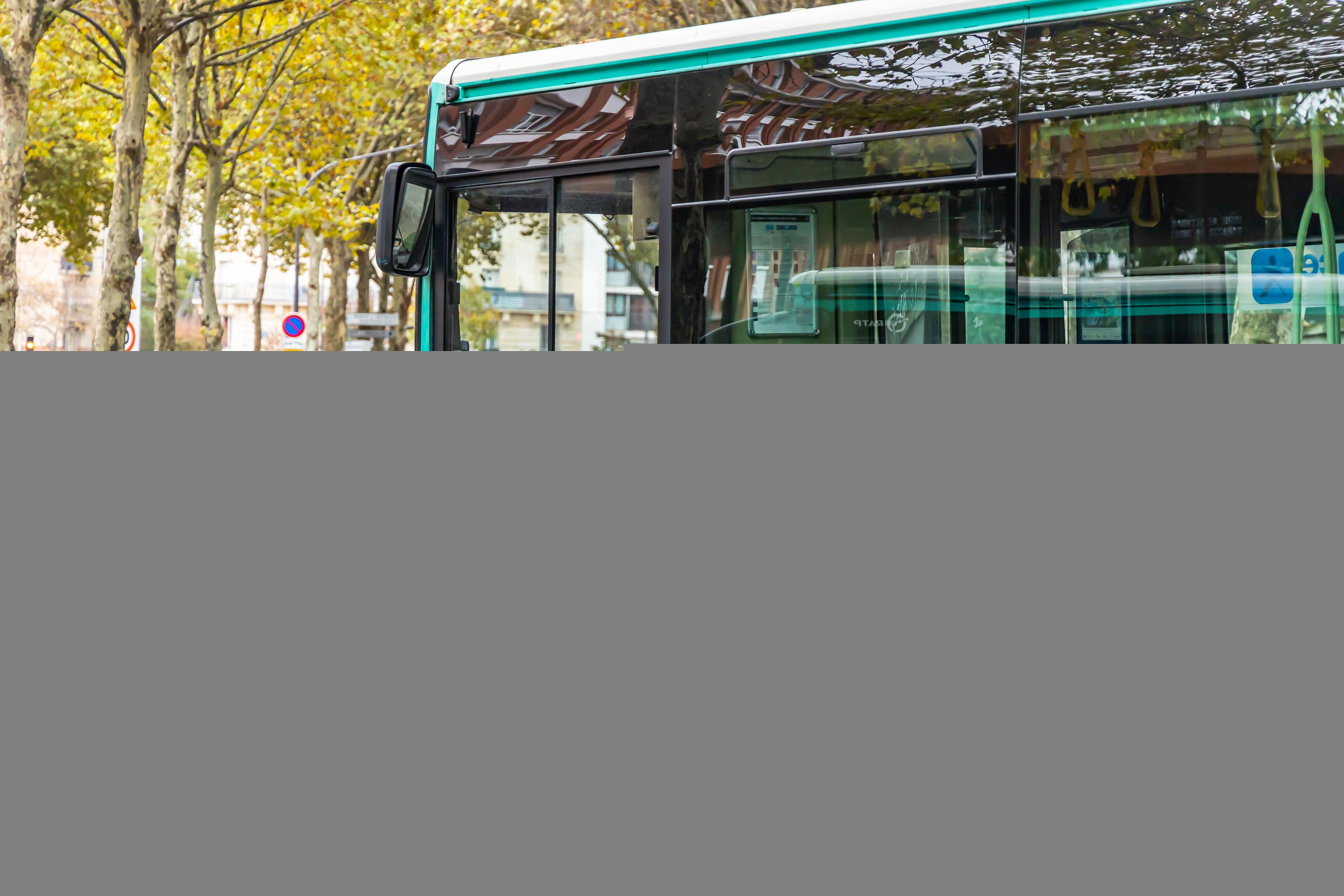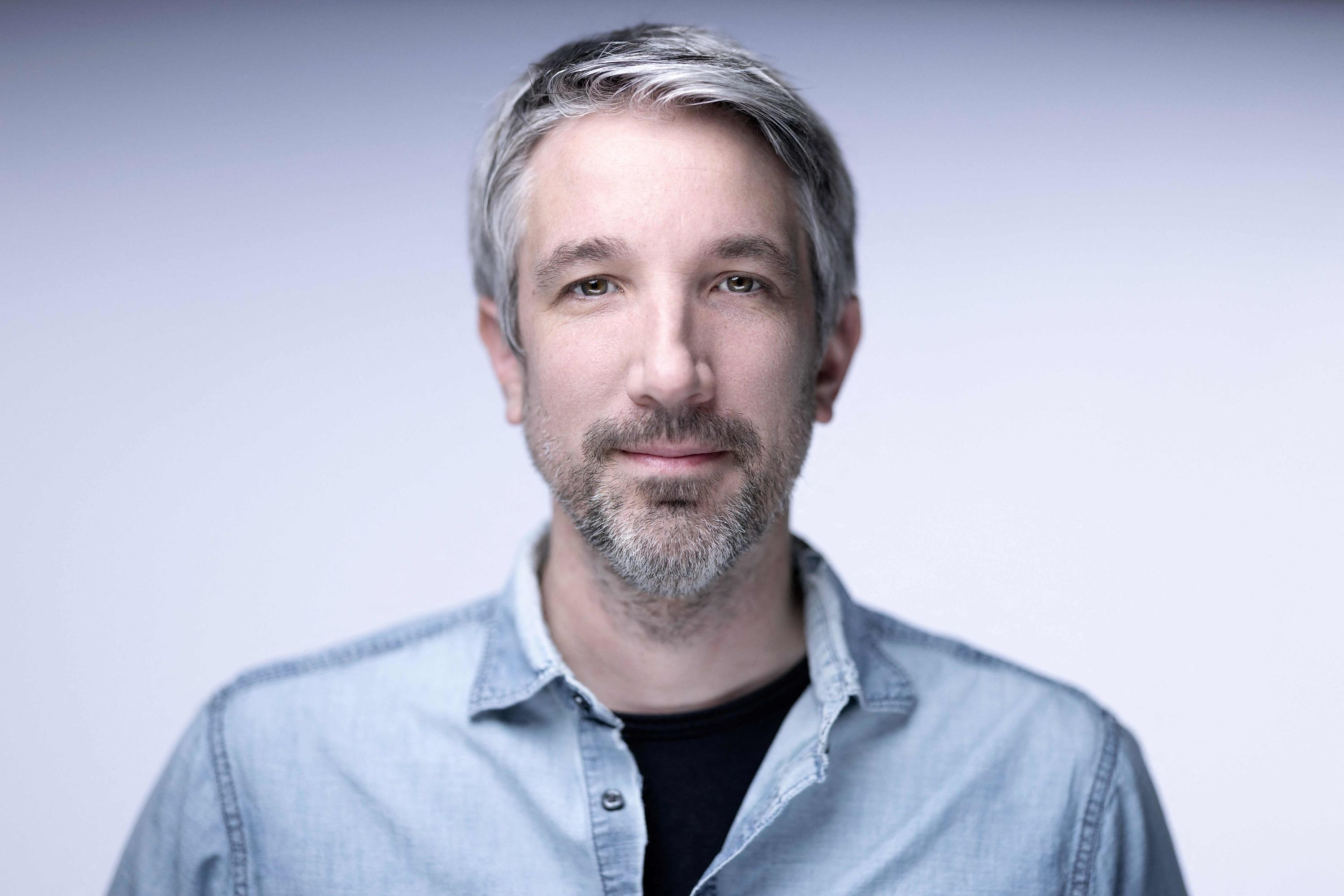The mass exodus of over a million people from the Ukraine poses major challenges for the already strained school system in Germany. Since the start of the Russian war of aggression, German schools have taken in more than 200,000 refugee children and young people from Ukraine.
Numerically, North Rhine-Westphalia (38,000), Bavaria (29,000) and Baden-Württemberg (29,000) have the most Ukrainian students. In relation to the other number of students, Hamburg, Mecklenburg-Western Pomerania and Saxony are at the top of the federal states willing to accept them. The Media Service Integration presented correspondingly prepared figures from the Conference of Ministers of Education on Tuesday.
It was a matter of course for the education ministers to quickly take in the victims of the war of aggression and integrate them into the schools, said the President of the Conference of Education Ministers, Schleswig-Holstein's department head Karin Prien (CDU). The countries could have used the structures from the previous refugee crisis. “Based on our experience from 2015/16, we were able to react very quickly here. We have built up a lot of intercultural competence over the years.”
Initially, most of the federal states initially taught the refugee students in so-called welcome, preparatory, bridging or intensive classes. In the meantime, however, many schools have started to integrate the students into the regular classes if they speak sufficient German, according to the media service's survey of the ministries of education. In Brandenburg, Lower Saxony, Rhineland-Palatinate, Saarland and Thuringia, the Ukrainian pupils are generally learning together with the others in regular classes this school year.
In Baden-Württemberg, Berlin, Bremen, Hesse, Mecklenburg-Western Pomerania, Saxony and Schleswig-Holstein, they are initially taught separately, but have joint lessons in subjects such as music, physical education or English. There are different models in Bavaria, Berlin, North Rhine-Westphalia and Saxony-Anhalt. Bavaria, for example, integrates the younger children into regular classes right from the start, while the older pupils initially attend bridge classes.
At first, many refugees sat on packed suitcases and were not very interested in integrating their children into the German school system, said Natalia Roesler, spokeswoman for the Federal Parents' Network of Migrant Organizations (bbt). Many would therefore have attended the online lessons in Ukraine at the same time. “In the meantime, about 40 percent of the people want to stay here longer. The willingness to integrate is growing.” Despite the fact that schooling is compulsory, many children are still not going to school because there is a lack of school places, staff and rooms.
According to research by the media service Integration, the capacities in some federal states are so overburdened that refugee children cannot yet attend school. In North Rhine-Westphalia, a good 1,000 children were still waiting for a school place at the end of October, and Berlin was missing 1,600 school places. "For almost all federal states, the biggest challenge is that there is a shortage of teachers," the report states. “Some lessons took place outside of the schools, or classes were increased. In Brandenburg, for example, youth clubs were rented in order to have additional space available.” Several states also reported that many children also attend Ukrainian lessons in the afternoon, which is a high double burden for the students. In addition, many children and young people are psychologically burdened by the war and have traumata.
In order to teach the children in the best possible way, all federal states have hired additional staff. 3,000 Ukrainians have meanwhile also found jobs in schools – but mostly not as teachers. In order to make trained teachers fit for the German school system, they are now given adaptation training courses, said Prien.
Juliane Karakayali, migration researcher at the Evangelische Hochschule Berlin, criticized the "patchwork" in the schooling. "There hasn't been any greater standardization here in recent years." In many federal states, the preparatory classes are not very formalized without a fixed curriculum and therefore represent a kind of parallel system within the school, which leads to separation and stigmatization. Far too little has happened here since 2015, criticized Karakayali. "It is hardly acceptable that we repeatedly have to fall into a mode of ad hoc solutions that the students then have to pay for."
"Kick-off Politics" is WELT's daily news podcast. The most important topic analyzed by WELT editors and the dates of the day. Subscribe to the podcast on Spotify, Apple Podcasts, Amazon Music, among others, or directly via RSS feed.

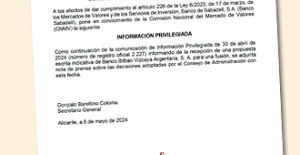 Sabadell rejects the merger with BBVA and will fight to remain alone
Sabadell rejects the merger with BBVA and will fight to remain alone In Germany, the far left wants to cap the price of “doner kebabs”
In Germany, the far left wants to cap the price of “doner kebabs” Israel-Hamas war: Gaza between hope of truce and fear of Israeli offensive in the South
Israel-Hamas war: Gaza between hope of truce and fear of Israeli offensive in the South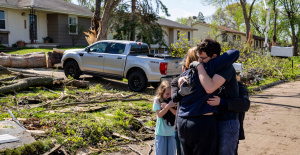 “Mom, Dad, please don’t die”: in the United States, a nine-year-old child saves the lives of his parents injured in a tornado
“Mom, Dad, please don’t die”: in the United States, a nine-year-old child saves the lives of his parents injured in a tornado The presence of blood in the urine, a warning sign of bladder cancer
The presence of blood in the urine, a warning sign of bladder cancer A baby whose mother smoked during pregnancy will age more quickly
A baby whose mother smoked during pregnancy will age more quickly The euro zone economy grows in April at its best pace in almost a year but inflationary pressure increases
The euro zone economy grows in April at its best pace in almost a year but inflationary pressure increases Children born thanks to PMA do not have more cancers than others
Children born thanks to PMA do not have more cancers than others “House of the Dragon”, “Succession”… Max, the new streaming platform from HBO and Discovery, launched in France on June 11
“House of the Dragon”, “Succession”… Max, the new streaming platform from HBO and Discovery, launched in France on June 11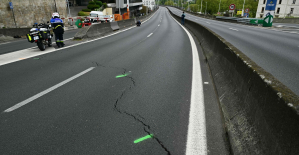 The A13 motorway will finally reopen this Friday, in one direction only
The A13 motorway will finally reopen this Friday, in one direction only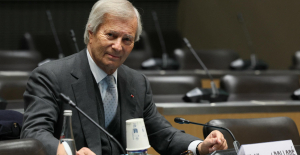 TNT commission of inquiry: tensions between LFI deputies and Macronists before the vote on the report
TNT commission of inquiry: tensions between LFI deputies and Macronists before the vote on the report Apple unveils a new, more efficient iPad range
Apple unveils a new, more efficient iPad range The Gaza War invites itself to the 2024 Pulitzer Prizes
The Gaza War invites itself to the 2024 Pulitzer Prizes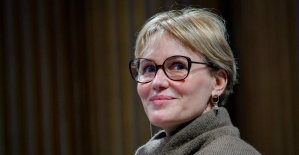 Judith Godrèche presents a short film on sexual violence in Cannes
Judith Godrèche presents a short film on sexual violence in Cannes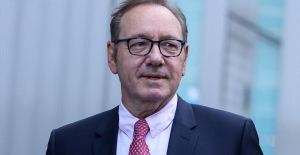 Kevin Spacey: new trial in sight in London for the American actor, for sexual assault
Kevin Spacey: new trial in sight in London for the American actor, for sexual assault Taylor Swift fans make London pub Black Dog their new place of pilgrimage
Taylor Swift fans make London pub Black Dog their new place of pilgrimage Omoda 7, another Chinese car that could be manufactured in Spain
Omoda 7, another Chinese car that could be manufactured in Spain BYD chooses CA Auto Bank as financial partner in Spain
BYD chooses CA Auto Bank as financial partner in Spain Tesla and Baidu sign key agreement to boost development of autonomous driving
Tesla and Baidu sign key agreement to boost development of autonomous driving Skoda Kodiaq 2024: a 'beast' plug-in hybrid SUV
Skoda Kodiaq 2024: a 'beast' plug-in hybrid SUV The home mortgage firm rises 3.8% in February and the average interest moderates to 3.33%
The home mortgage firm rises 3.8% in February and the average interest moderates to 3.33% This is how housing prices have changed in Spain in the last decade
This is how housing prices have changed in Spain in the last decade The home mortgage firm drops 10% in January and interest soars to 3.46%
The home mortgage firm drops 10% in January and interest soars to 3.46% The jewel of the Rocío de Nagüeles urbanization: a dream villa in Marbella
The jewel of the Rocío de Nagüeles urbanization: a dream villa in Marbella Institutions: senators want to restore the accumulation of mandates and put an end to the automatic presence of ex-presidents on the Constitutional Council
Institutions: senators want to restore the accumulation of mandates and put an end to the automatic presence of ex-presidents on the Constitutional Council Europeans: David Lisnard expresses his “essential and vital” support for François-Xavier Bellamy
Europeans: David Lisnard expresses his “essential and vital” support for François-Xavier Bellamy Facing Jordan Bardella, the popularity match turns to Gabriel Attal’s advantage
Facing Jordan Bardella, the popularity match turns to Gabriel Attal’s advantage Europeans: a senior official on the National Rally list
Europeans: a senior official on the National Rally list These French cities that will boycott the World Cup in Qatar
These French cities that will boycott the World Cup in Qatar “The future is for us”: “disappointed” and “proud” at the same time, Al-Khelaïfi sees the glass half full after the elimination of PSG
“The future is for us”: “disappointed” and “proud” at the same time, Al-Khelaïfi sees the glass half full after the elimination of PSG PSG: “Since January, these have not been my best matches,” agrees Zaire-Emery, who promises to “come back stronger”
PSG: “Since January, these have not been my best matches,” agrees Zaire-Emery, who promises to “come back stronger” “What is this question, honestly?” : Nasser Al-Khelaïfi (very) annoyed after PSG-Dortmund
“What is this question, honestly?” : Nasser Al-Khelaïfi (very) annoyed after PSG-Dortmund “I am the guy who has to score the goals”: Mbappé does not hide and assumes responsibility after PSG’s exit
“I am the guy who has to score the goals”: Mbappé does not hide and assumes responsibility after PSG’s exit





